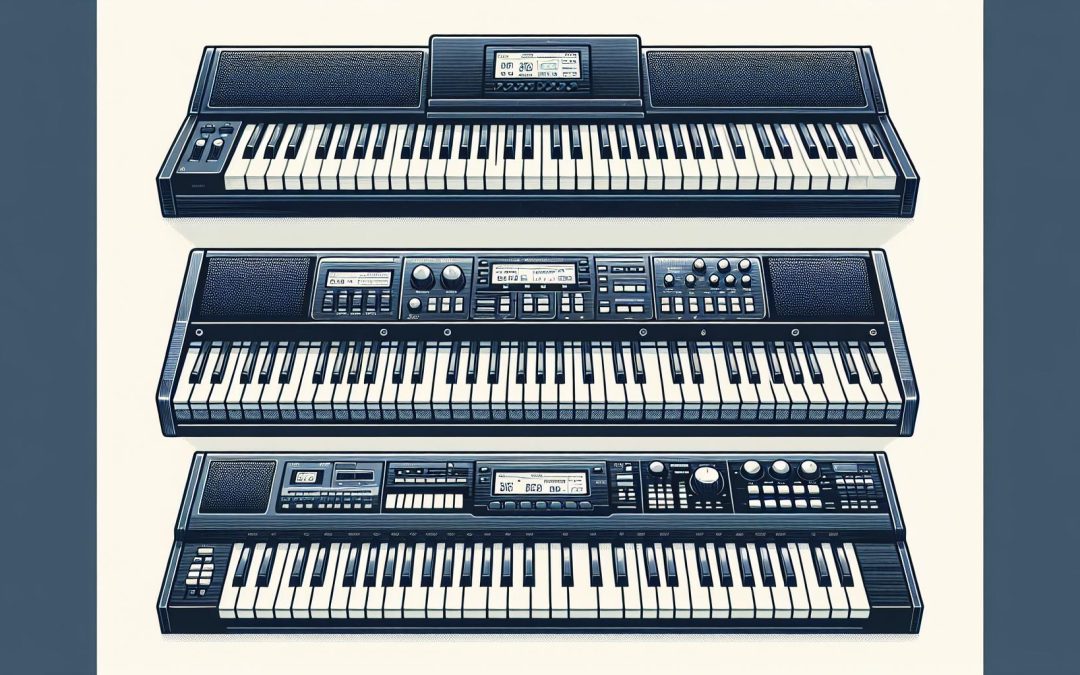Starting on the journey to learn piano can be as thrilling as it is daunting. With so many options out there, it's tough to know which digital piano is the right fit for a beginner. They're looking for something that feels good under their fingers, sounds authentic, and won't break the bank.
Luckily, the market is full of fantastic options tailored to those just starting out. From models that mimic the touch of an acoustic piano to those packed with learning tools, there's a perfect match for every budding musician. Let's dive into the world of digital pianos and discover the best picks for beginners.
Key Features to Consider
When embarking on the thrilling journey of learning the piano, choosing the right digital piano becomes a pivotal decision. Novice musicians might find themselves overwhelmed by the plethora of options available in the market. It's essential to focus on a few key features that can make the learning process smoother and more enjoyable.
Touch Response and Weighted Keys
One of the most critical aspects of a digital piano for beginners is its touch response and whether it has weighted keys. Weighted keys emulate the heft and resistance of an acoustic piano's keys, providing a more authentic playing experience. This feature is crucial for beginners as it aids in developing proper finger strength and technique from the start. Touch sensitivity, where the sound changes depending on how hard or soft the keys are pressed, is also vital for expressing musicality.
Sound Quality
The sound quality of a digital piano is another significant factor to consider. High-quality sound samples and a good built-in speaker system can greatly enhance the playing experience. Look for digital pianos that offer a range of sounds, including different piano types and other instruments, to explore various musical styles. Realistic sound helps in keeping learners motivated and engaged with their practice.
Learning Tools and Features
Many digital pianos come equipped with built-in learning tools that can be invaluable for beginners. Features such as built-in lessons, play-along songs, and duet modes not only make learning fun but also provide structured guidance that can help in tracking progress. Some models also offer connectivity with apps and software, offering an interactive learning experience that resonates with the tech-savvy generation.
Size and Portability
Beginners often overlook the importance of a digital piano's size and portability. It's essential to consider the available space and whether the instrument will need to be moved frequently. Compact and lightweight models are ideal for those with limited space or those who wish to carry their piano to lessons or performances.
Price
Price is always a consideration, especially for beginners who are not yet fully committed to the instrument. Fortunately, the market offers a wide range of digital pianos across various price points. Setting a budget can help narrow down the options, but it's important to invest in a model that offers a balance between quality features and affordability.
Budget-Friendly Options
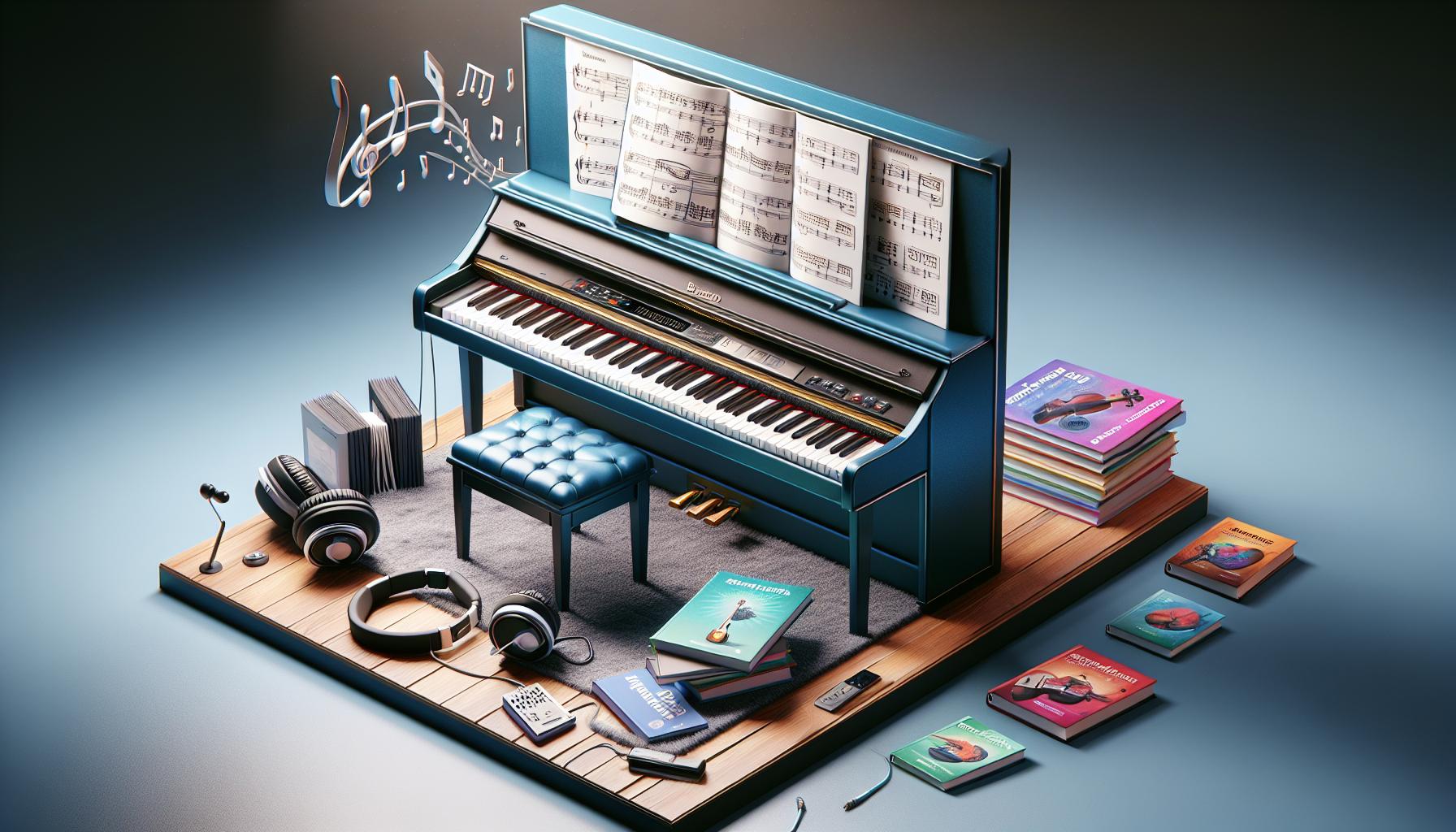
When embarking on the musical journey of learning to play the piano, it's crucial to find an instrument that not only supports but enhances the learning process without breaking the bank. Budget-friendly digital pianos offer an excellent starting point for beginners, combining cost-effectiveness with essential features. In this section, they'll explore a selection of digital pianos that provide the best value for money, ensuring that beginners can still enjoy a quality learning experience.
First off, affordability doesn't mean compromise. Many budget-friendly digital pianos are equipped with weighted keys and touch sensitivity, mimicking the feel of an acoustic piano. This is pivotal for building proper finger strength and technique from the outset. Brands like Yamaha, Casio, and Roland have models that cater to beginners, offering these crucial features at a more accessible price point.
Sound quality is another aspect where cost-effective models have made significant strides. Advances in technology have enabled manufacturers to produce rich and dynamic sounds in more affordable instruments. Look for digital pianos that boast High-Quality Samples of grand pianos, as these provide a more authentic and inspiring playing experience. Some models also offer a variety of sounds, which can keep practice sessions interesting and motivate learners to explore different musical styles.
Connectivity features should not be overlooked. USB and MIDI ports can turn a digital piano into a versatile tool, enabling beginners to connect to computers and mobile devices for educational software and apps. This connectivity can significantly enhance the learning process, offering interactive lessons, tracking progress, and even composing music. It's an added bonus that many budget-friendly options now include these features.
Portability is a key factor for many beginners, especially those with limited space. Lightweight and compact digital pianos ensure that practice can happen anywhere, making them a popular choice for young learners or individuals in smaller living arrangements. This flexibility allows for a more consistent practice routine, crucial for progress.
Lastly, let's talk about built-in learning tools. Some budget-friendly digital pianos come equipped with onboard lessons, metronomes, and record functions. These tools can guide beginners through the basics, help maintain timing, and allow for self-assessment by recording and listening back to practice sessions. It's features like these that can amplify the effectiveness of practice and learning, providing substantial value for beginners.
Weighted vs. Unweighted Keys
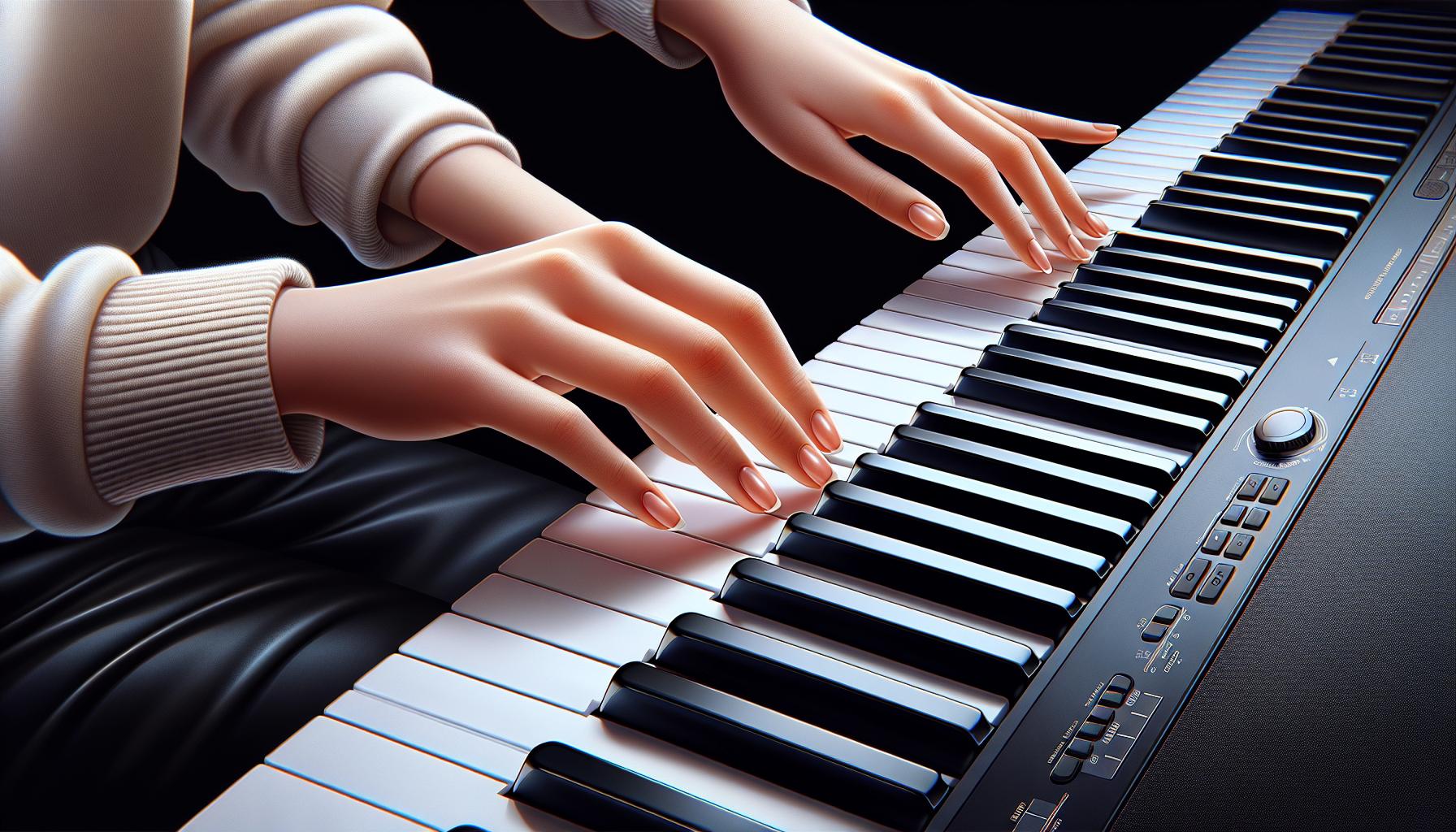
When stepping into the world of digital pianos, beginners often encounter the choice between weighted and unweighted keys. It's a pivotal decision that can significantly impact one's learning experience and comfort during practice. Weighted keys mimic the resistance and feel of an acoustic piano's keys, providing a more realistic touch that can greatly benefit technique development. Unweighted keys, on the other hand, offer a light, easy touch that may appeal to some for its simplicity and ease of use.
The Appeal of Weighted Keys
For those aiming to build a strong foundation in piano playing, weighted keys are often recommended. They replicate the hammer action of traditional pianos, making the transition from digital to acoustic instruments smoother. Moreover, playing on weighted keys develops finger strength and control, which are crucial for expressing dynamics and emotion in music. Brands such as Yamaha and Roland are known for their high-quality weighted keyboards, often incorporating their own patented technology to enhance the playing experience.
| Brand | Model | Key Type | Price Range |
|---|---|---|---|
| Yamaha | P-45 | Weighted | Low-Mid |
| Roland | FP-10 | Weighted | Low-Mid |
| Casio | Privia PX-160 | Weighted | Low-Mid |
The Case for Unweighted Keys
Unweighted or semi-weighted keys cater to beginners looking for a less daunting start or those whose primary focus isn't necessarily classical music. These keys require less finger pressure, making them suitable for younger players or those with less physical strength. Additionally, keyboards with unweighted keys tend to be more affordable and lightweight, thus more portable. Casio and Yamaha offer several models in this category, striking a balance between cost and features.
| Brand | Model | Key Type | Price Range |
|---|---|---|---|
| Yamaha | PSR-E363 | Unweighted | Low |
| Casio | CTK-2550 | Unweighted | Low |
Connectivity and Compatibility
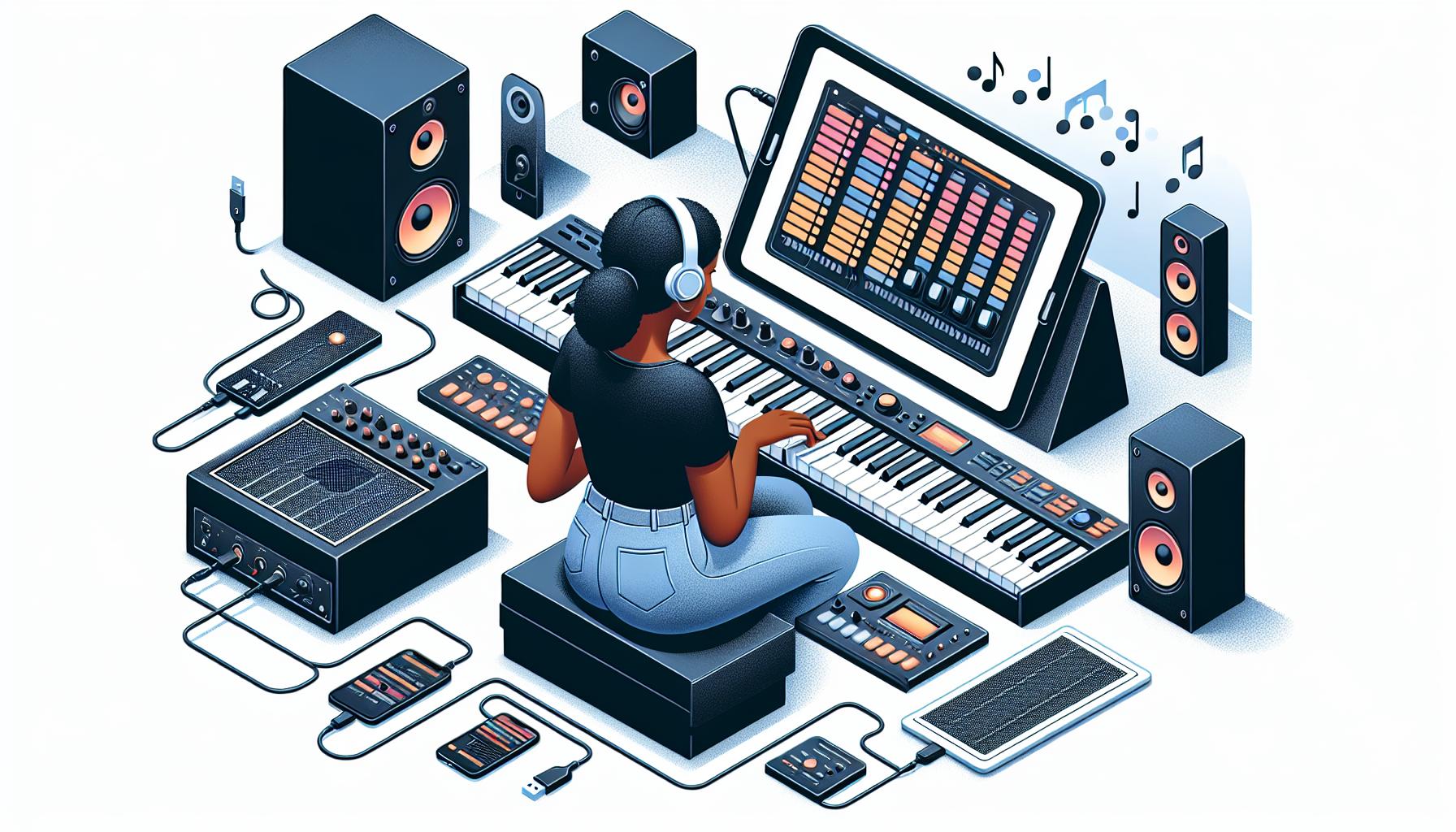
In the landscape of digital pianos, connectivity plays a vital role, especially for beginners who are increasingly relying on technology to enhance their learning experience. Most digital pianos today come equipped with various ports and wireless connectivity options, allowing students to easily connect their instruments to computers, tablets, and smartphones. This connectivity not only facilitates the use of learning software and apps but also enables beginners to record their playing, a feature that can significantly accelerate the learning process by providing instant feedback.
When considering a digital piano, one should look out for MIDI (Musical Instrument Digital Interface) compatibility. MIDI is a standard that enables musical instruments and computers to communicate with each other, allowing for a seamless exchange of musical information. This technology opens up a wealth of opportunities for beginners to explore different sounds, compose, and even arrange music with ease. Moreover, many digital pianos offer USB ports, which are essential for direct connection to computers and other devices without the need for a separate MIDI interface.
Bluetooth connectivity is another aspect that should not be overlooked. A digital piano with Bluetooth allows for wireless connection to a range of devices, including speakers for a more immersive playing experience, headphones for silent practice, and smart devices for using educational apps. This feature brings a considerable amount of flexibility and convenience into practicing, making the learning journey more engaging and enjoyable.
Here are some key points to remember when assessing a digital piano's connectivity and compatibility:
- MIDI Compatibility: Enables connection to a wide array of musical equipment and software for an enhanced learning experience.
- USB Ports: Facilitate direct connections to computers and other devices, simplifying the recording and sharing of performances.
- Bluetooth Connectivity: Offers wireless connections to speakers, headphones, and smart devices, providing flexibility and convenience in practice and performance.
Beginners should also consider the type of software and apps that are compatible with their digital piano. The market is flooded with educational apps that can make learning more interactive and fun. These apps offer a range of features from video lessons, interactive sheet music, to gamified learning experiences. Therefore, it's important to choose a digital piano that supports a wide range of apps, ensuring that beginners have access to the tools that can best support their individual learning journey.
Top Recommendations
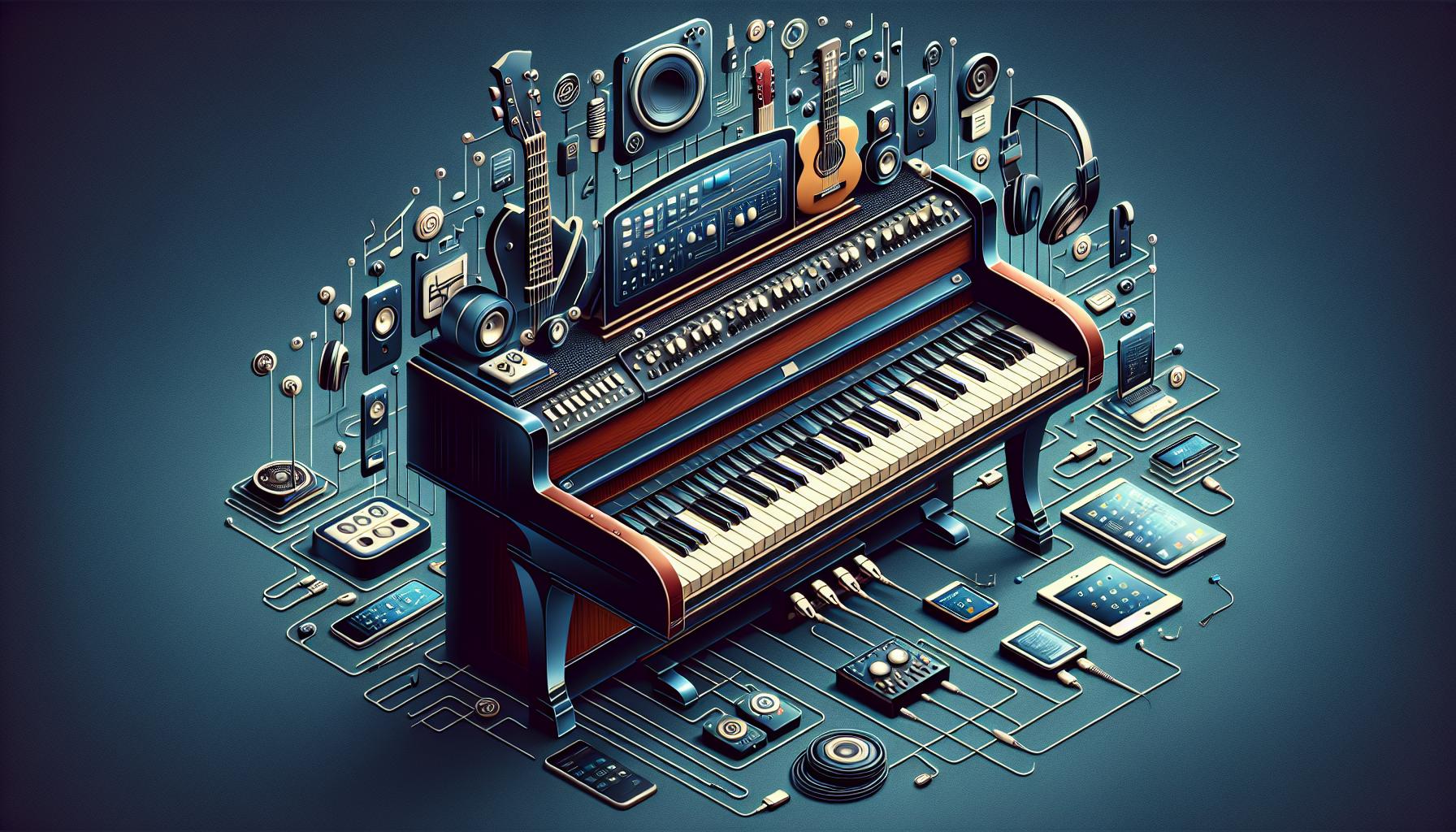
When searching for the best digital piano for beginners, it's essential to factor in ease of use, sound quality, and, as previously discussed, connectivity features. Here are some top recommendations that strike a balance between these crucial aspects.
Yamaha P-45 Digital Piano stands out for its simplicity and quality. It boasts 88 fully weighted keys that mimic the feel of an acoustic piano, providing a realistic playing experience for beginners. The P-45 is equipped with Advanced Wave Memory (AWM) sampling, which uses digital technology to capture the sound of an acoustic piano. It also offers USB to Host connectivity, allowing beginners to connect to music education apps easily.
Another excellent option is the Casio Privia PX-160. It offers impressive features at an affordable price, making it a favorite among beginners. The Tri-Sensor Scaled Hammer Action Keyboard accurately captures the dynamics of a performance, ensuring an authentic piano experience. The PX-160 also shines with its superior sound engine and has two headphone outputs, perfect for quiet practice sessions. Connectivity-wise, it includes a USB port for easy connections to computers and mobile devices.
For those prioritizing connectivity, the Roland FP-10 is a fantastic choice. It not only offers Bluetooth MIDI for seamless integration with apps and software but also packs Roland's acclaimed sound and feel into a compact, affordable instrument. The FP-10’s PHA-4 Standard Keyboard brings the refined feel of an ivory keyboard, while its SuperNATURAL Piano sound engine delivers the rich, expressive tone of Roland’s flagship pianos.
| Model | Keys | Connectivity | Sound Technology |
|---|---|---|---|
| Yamaha P-45 | 88 | USB to Host | AWM Sampling |
| Casio Privia PX-160 | 88 | USB | Multi-dimensional Morphing AiR |
| Roland FP-10 | 88 | Bluetooth MIDI, USB | SuperNATURAL Piano |
Each of these models also includes various built-in sounds and rhythms, further enhancing the learning experience by allowing students to experiment with different styles of music.
Conclusion
Choosing the right digital piano is a crucial step for beginners embarking on their musical journey. The Yamaha P-45, Casio Privia PX-160, and Roland FP-10 stand out for their user-friendly features, superior sound quality, and versatile connectivity options. Whether it's the simplicity and authenticity of the Yamaha, the affordability and touch response of the Casio, or the advanced technology and natural sound of the Roland, there's a piano that fits every new learner's needs. With these models, beginners have everything they need to start their musical journey on the right note.
Harlan Kilstein began playing piano during covid with no piano background at all. He taught himself how to play learning what to do and what not to do.
Today he's an advanced intermediate player and can help you grow in your skills because he learned all this on his own.

